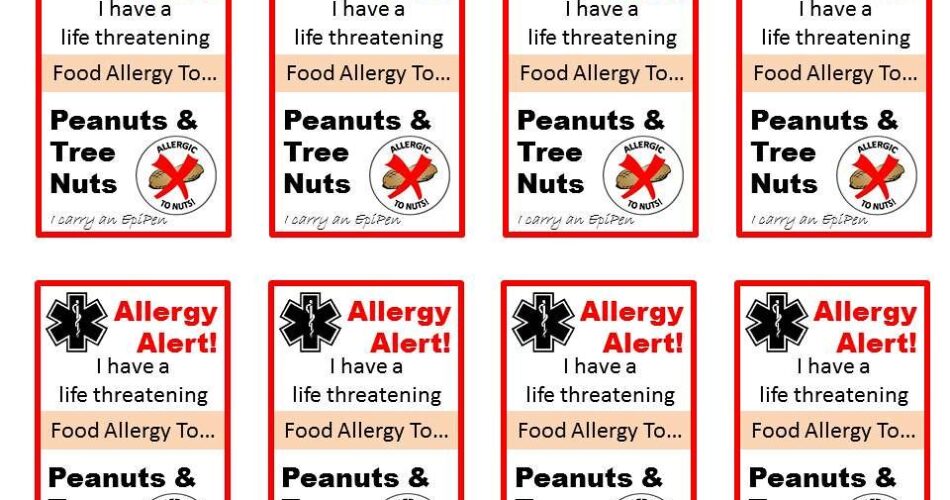In a world where peanut butter and jelly sandwiches and peanut-filled snacks are ubiquitous, the rise of peanut allergies has left many scratching their heads. The prevalence of this potentially life-threatening condition has sparked curiosity and concern among scientists and the general public alike. What exactly causes peanut allergy, and why are some individuals affected while others can enjoy peanuts without issue? Delving into the intricate web of immune responses and genetic predispositions, researchers are unraveling the mystery behind this enigmatic allergy. Let’s explore the fascinating world of peanut allergy and uncover the underlying forces at play.
Understanding Peanut Allergy Triggers
Although peanut allergies are one of the most common food allergies, the exact cause of why some people develop this allergy remains a mystery. However, researchers believe that genetics play a significant role in determining who is more likely to be affected by peanut allergies. If you have a family history of allergies, especially to peanuts, you may be at a higher risk of developing a peanut allergy yourself.
Another potential trigger for peanut allergies is the immune system overreacting to certain proteins found in peanuts. When someone with a peanut allergy consumes peanuts or products containing peanuts, their immune system mistakenly identifies the proteins as harmful invaders, triggering an allergic reaction. This immune response can range from mild symptoms like itching and hives to severe reactions such as anaphylaxis, which can be life-threatening.
Environmental factors may also contribute to the development of peanut allergies. Some studies suggest that early exposure to peanuts during infancy can either increase or decrease the risk of developing a peanut allergy later in life. Additionally, factors like pollution and changes in the food supply chain may play a role in the rising prevalence of peanut allergies in recent years.

Genetic Factors that Influence Peanut Allergies
Research suggests that genetics play a significant role in determining whether or not someone will develop a peanut allergy. Certain genes can affect how the immune system responds to peanuts, leading to an increased risk of developing an allergy. This genetic predisposition can be inherited from one or both parents, making some individuals more susceptible to developing a peanut allergy than others.
One key genetic factor that influences peanut allergies is the production of specific antibodies called immunoglobulin E (IgE). People with peanut allergies tend to produce higher levels of IgE in response to peanuts, triggering an allergic reaction when they come into contact with even trace amounts of the allergen. This increased production of IgE is often genetically determined, making individuals more prone to developing a peanut allergy.
Furthermore, variations in certain genes related to the immune system can also impact how the body processes and reacts to peanuts. For example, mutations in genes that regulate immune responses or inflammation may contribute to the development of peanut allergies. These genetic factors can influence how the immune system recognizes peanuts as foreign substances and triggers an allergic response, leading to the symptoms associated with peanut allergies.
Environmental Factors at Play in Peanut Allergy Development
Studies suggest that there are various environmental factors that may contribute to the development of peanut allergies in individuals. These factors can interact with genetic predispositions to trigger allergic responses. Understanding these environmental influences is crucial in preventing and managing peanut allergies.
Factors that may play a role in peanut allergy development include:
-
- Exposure to peanuts at a young age
-
- Changes in diet and consumption patterns
-
- Environmental pollutants and toxins
It is believed that early exposure to peanuts, particularly in infancy, may either increase or decrease the risk of developing an allergy. Changes in diet, such as decreased diversity in food choices or increased consumption of processed foods, may also impact the immune system’s response to peanuts. Additionally, exposure to environmental pollutants and toxins may disrupt the immune system’s tolerance to certain foods like peanuts.

Impact of Early Introduction to Peanuts on Allergy Prevention
Many parents wonder about the root cause of peanut allergies in children. While there is no single answer, researchers have identified several factors that may contribute to the development of this common allergy. Genetics play a significant role, as children with family members who have allergies are more likely to develop them themselves. Additionally, environmental factors such as pollution and diet can also play a role in the development of allergies.
Recent studies have shown that early introduction to peanuts in a child’s diet may actually help prevent the development of peanut allergies later in life. This goes against previous beliefs that avoiding peanuts in infancy was the best way to prevent allergies. By introducing peanuts early, the immune system is exposed to the allergen in a controlled manner, potentially reducing the likelihood of developing an allergic reaction to peanuts.
Consulting with a pediatrician before introducing peanuts to a child’s diet is recommended to ensure that it is done safely and in a way that is appropriate for the child’s individual health needs. Starting with small amounts of peanut products and gradually increasing exposure can help build tolerance and reduce the risk of developing an allergy. It is important to monitor for any signs of an allergic reaction and seek medical attention if necessary.

Effective Management Strategies for Individuals with Peanut Allergies
Peanut allergy is caused by the body’s immune system mistakenly identifying proteins in peanuts as harmful invaders. When a person with peanut allergy comes into contact with peanuts, their immune system releases chemicals like histamine to attack the allergen, leading to a range of symptoms from mild itching to life-threatening anaphylaxis.
There is a genetic component to peanut allergy, meaning individuals with a family history of allergies are more likely to develop an allergy themselves. Additionally, early exposure to peanuts during infancy has been linked to a lower risk of developing a peanut allergy later in life. Researchers believe that avoiding peanuts during early childhood may actually increase the risk of developing an allergy.
It is crucial for individuals with peanut allergies to carefully read food labels, ask about ingredients when dining out, and carry an epinephrine auto-injector at all times in case of accidental exposure. Avoiding cross-contamination is also key, as even trace amounts of peanuts can trigger an allergic reaction. Educating friends, family, and caregivers about the seriousness of peanut allergies is essential for creating a safe environment for those with the condition.
Q&A
Q: What causes peanut allergy?
A: Peanut allergy is caused by an overreaction of the immune system to proteins found in peanuts.
Q: How common is peanut allergy?
A: Peanut allergy is one of the most common food allergies among children and adults, affecting approximately 1-2% of the population.
Q: Can peanut allergy be inherited?
A: Yes, peanut allergy can be inherited. If one or both parents have a peanut allergy, there is an increased risk that their children will also develop a peanut allergy.
Q: Are there any other factors that can contribute to developing a peanut allergy?
A: Yes, factors such as genetics, early introduction of peanuts to infants, and a weakened immune system can all contribute to the development of a peanut allergy.
Q: Is there a cure for peanut allergy?
A: Currently, there is no cure for peanut allergy. Treatment typically involves avoiding peanuts and carrying an epinephrine auto-injector in case of accidental exposure.
Key Takeaways
In conclusion, understanding the complex mechanisms behind peanut allergies is essential in finding ways to prevent and manage this potentially life-threatening condition. By exploring the various factors that can trigger an allergic reaction, we can work towards creating a safer environment for those affected by peanut allergies. Remember, knowledge is power when it comes to protecting our health and well-being. Stay informed, stay vigilant, and stay safe.





